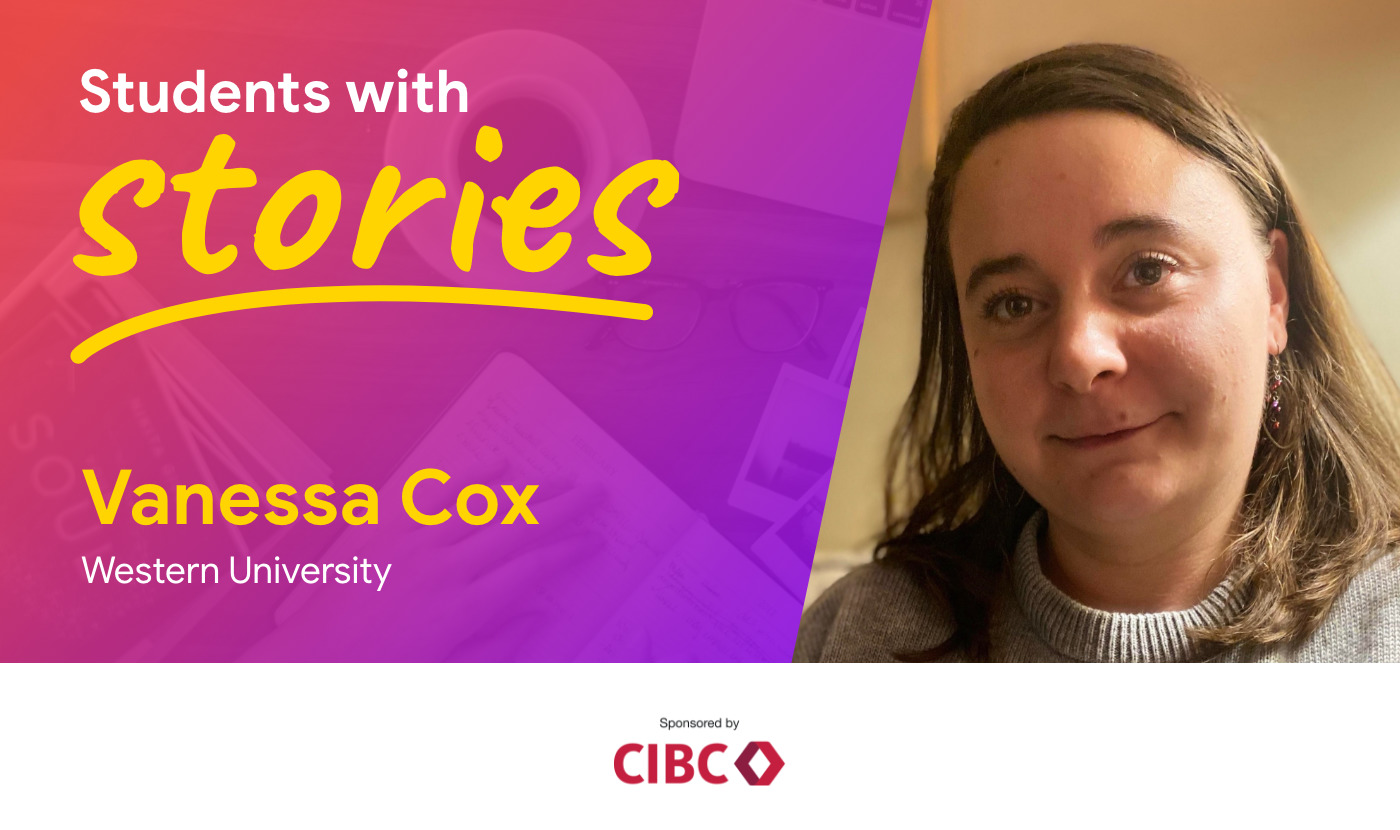Wondering how COVID-19 impacted those with intellectual disabilities? We asked Vanessa Cox, a Ph.D. candidate studying Health and Rehabilitation Sciences to learn more.
While 2020 was a major buzzkill to many of us concert-goers and travel enthusiasts, some people experienced the pandemic from a much more humble perspective. Vanessa Cox, a Ph.D student at Western University works as a Direct Support Professional which involves supporting adults with developmental disabilities. In her experience, here’s how the pandemic disrupted the lives of the people she supports in terms of routine, structure, and access to resources.
What initially inspired you to pursue work in this field?
“I felt inspired to get involved and to help bridge those treatment gaps.”
I became interested in this field when I was a teenager receiving treatment for something that led to a long stay in the hospital. While I was there, a woman with an intellectual disability was receiving treatment for the same thing. I noticed quickly that there were discrepancies in the way the medical personnel seemed to carry out our treatments, so I felt inspired to get involved and to help bridge those treatment gaps. A music therapist at the hospital asked if I wanted to work at her summer camp for kids with disabilities.
Can you expand a bit on what your job involves for those who may not be familiar?
“Given the complications surrounding COVID-19, these sorts of activities have come to a temporary halt.”
In general, my job involves supporting adults with developmental disabilities in their day-to-day lives. The support needed for each person really depends on what the person requires regularly as well as their individual preferences and goals. For some people, like those living in long term care, my job has traditionally involved going for coffee walks or browsing the mall with the people I support. Given the complications surrounding COVID-19, these sorts of activities have come to a temporary halt. For others, support might involve helping to manage complex medical issues in their homes, which requires more hands-on care.
How or in what ways did the COVID-19 pandemic impact your work and the individuals you support?
For me, the work has changed a lot since the start of the pandemic. A huge part of my role focused on getting individuals out of the house, socializing, and getting involved with the community. Now, my role is more about supporting them to stay home, which involves finding different ways for them to socialize, stay busy, and cope with changes to their routines.
How has your work changed to better adapt to the current conditions?
The agency I work at (and many others) have had to pivot and find ways to adjust to an obstacle they had never anticipated. They face having to balance directions from the Ministry while also trying to ensure that everyone does not get painted by the same brush, and that they still provide individualized support. The agency I work for has advocated for funds to acquire iPads and tablets as a way of socializing through technology.
Do you feel that the individuals you work with have been provided enough support and resources through this pandemic. Why or why not?
“I think the pandemic further exposes some of these barriers. For example, housing.”
At the best of times, people with intellectual disabilities face challenges to access the necessary support and resources to thrive in society. I think the pandemic further exposes some of these barriers. For example, housing. Many young people with developmental disabilities are living in long term care homes and carry an increased burden of risk of contracting COVID-19 as well as far heavier restrictions. This is because there aren’t enough resources to support them in their own homes. Typically, there isn’t much of a reason why someone with a developmental disability couldn’t live in their own home if they wanted to, except for a lack of resources, or resources not being allocated effectively.
What is your biggest pain point right now, and what kind of support do you need or would benefit from?
I haven’t seen my family since last Christmas, and this was the first year I was not able to fly home for the holidays. It’s comforting to know that I am not the only one struggling with the isolation and being away from my family. I try to remind myself that we are all experiencing the impacts of COVID-19 together.
Speaking with students like Vanessa has helped us to broaden our awareness, and better understand how the pandemic influenced lives that many of us may not be directly exposed to. Vanessa’s work is critical to the needs of society, now more than ever. We wish Vanessa the best of luck as she completes her Ph.D at Western University!
If you, or someone you know, would like to offer a story to our “Students with Stories” series, please contact us here.

More top resources just for students
*Opinions expressed are those of the author, and not necessarily those of Student Life Network or their partners.

 Sponsored
Sponsored


